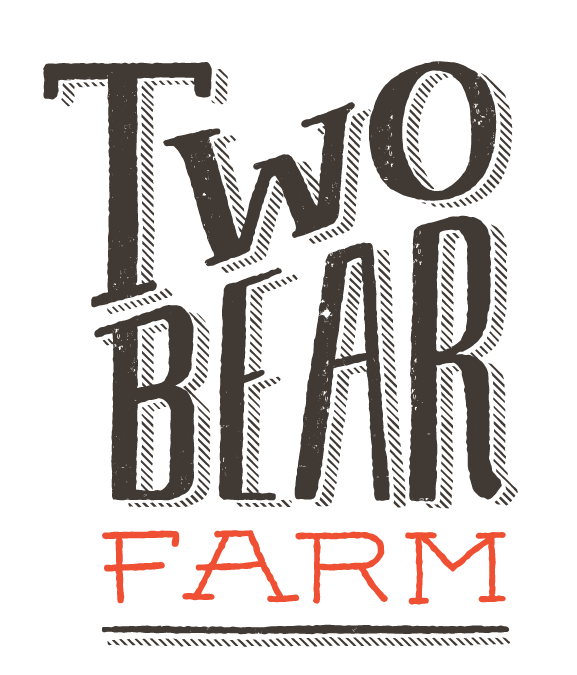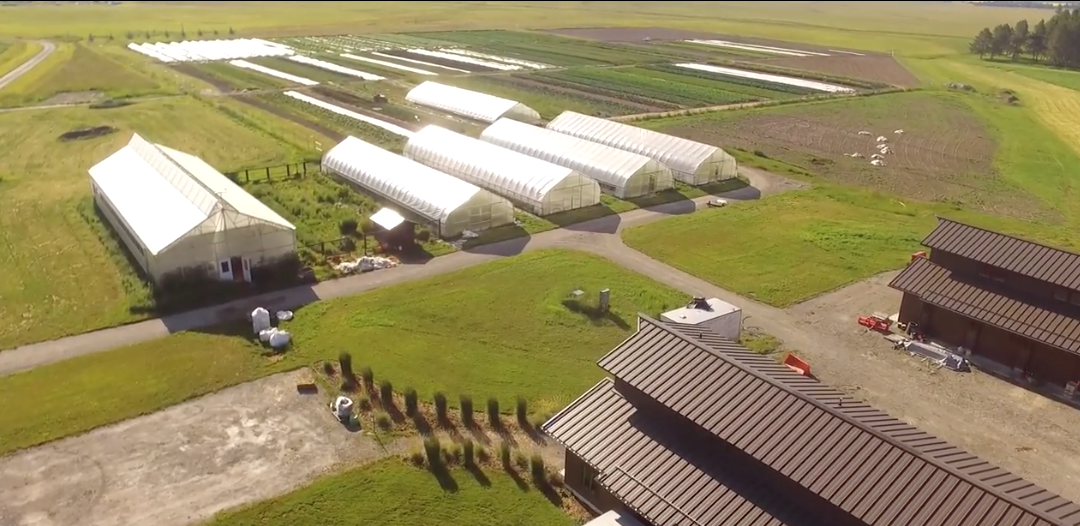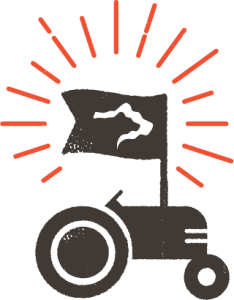Hello Community!
For many of us, 2021 represents an opportunity for a fresh start. With that theme in mind, I want to kick off the 2021 farm season by introducing ourselves to new customers, and by giving our existing customers a fresh perspective on our farm. It’s our 14th season of farming, and we’ve covered a lot of ground over the years, so I thought it would be fun, and hopefully useful, to talk about what we’ve learned over that time. My hope is that it also provides you, our supporters and community, with a better idea of why your decision to support local agriculture is so important in so many ways.
Our mission at Two Bear Farm has always been to provide fresh, high quality, nutritious food to our community at affordable prices, with good customer service, while being good land stewards.
While that all fits nicely into once sentence, the reality of achieving those goals takes our farming venture in many different directions, all with the aim of addressing important values in our community and in our own lives. Farming for us has always been a way for us to engage in the world by finding a more positive path forward. To be active agents of change, if even on a small scale. It’s been part advocacy, part resistance, and part rebellion. As a society, how we grow food is problematic, yet it’s not something that seems to be in the news or a common part of daily dialogue. And the reasons for this are complex. But there are things we need to understand as consumers and as a community that should inform our decisions.
Since we are sold out of vegetables for the winter, I thought perhaps i could provide you with some food for thought to carry us into spring. If I can manage to stick to it, my plan is to do a series of posts over the next week hitting on the following themes:
1. Who are we? An introduction to Two Bear Farm, what we do, and what we’ve learned along the way.
2. What is nutrition, and how is it created in a plant or animal? How do agricultural practices affect this? The role of soil, our relationship with it, and how different agricultural mindsets affect the quality of our food.
3.What is “local” and what is “organic”, and why are they different? How has organic evolved, and why it’s so troubling that industry pressure is changing the rules (especially regarding hydroponic production)
4. The importance of an informed consumer. How our daily purchases affect the entire world around us. And how greenwashing and a lack of transparency are so prevalent in both our global and local food systems. And what about cheap food? Why do we demand low cost food, and what are the ramifications of that?
5. Our vision for a path forward. Can a purely capitalistic food system model, one that is corporate dominated (with USDA assistance) be changed to better serve people, animals, and the planet? Is there a way to prioritize nutrition, animal welfare, soil health, and other important values, or is it always just about efficiency and squeezing out profit? Is it more feasible to not change it, but to forge a new path forward with an alternative system? And what is currently happening in the Flathead Valley along these lines?
Given the forecast this week, I thought it might be a good time to give folks some additional reading material 🙂 The goal of this effort is really two fold. First, it’s simply to provide our community with a fresh perspective on our food system. It’s not intended to be controversial, but rather to point out some issues that may not be common knowledge for the public at large. The second goal is to bring it back to your support of our farm, and how it’s not simply a transactional relationship. The “value” you get from purchasing our food goes way beyond just the produce you are buying. Your choice supports a healthy ecosystem, provides pollinator habitat, creates local economic opportunity, supports nutritious snacks in our public school systems, and much more that I’ll get into later. So stay tuned, and try to stay warm!
Todd









Looking forward to this week’s reading!
Looking forward to these posts Todd! Recently read “The Secret Life of Groceries” wow. ugh. I truly believe “food” should cost more but how do we get there? What do we even define as “food” these days? There is a big debate in Cali right now about getting essential grocery workers $4 more per hour as “hazard pay”… def. deserved and for most that still would not get them to $15 (which will hopefully be the new federal minimum wage). The grocer conglomerates will not do it; they do not feel government should dictate what they pay their workers. I get it from a biz standpoint, with food margins under 1% … where do you find the $ when your share holders want profits? OMG it’s so broken. Capitalism: The Race to the Bottom. (heavily sighing)…your insight will be great!
Thank you Thank you! ❤️❤️
My sister and I signed up together. We share your wonderful veggies and it makes me plan more healthy dinners. Can you add me to the e-mail list? I don’t want to miss any pertinent information. Thanks.
Hi Margo, You can go to our website twobearfarm.com and on the upper right side just below the USDA Organic logo, enter your email address where it says “subscribe to blog”. I would do it for you, but your email address isn’t visible to me in this WordPress comment section.
And if you missed any, all of my posts are shown directly below that sign-up area, so you can go back and read them at your leisure if you wish.
Looking forward to your posts! Thanks.